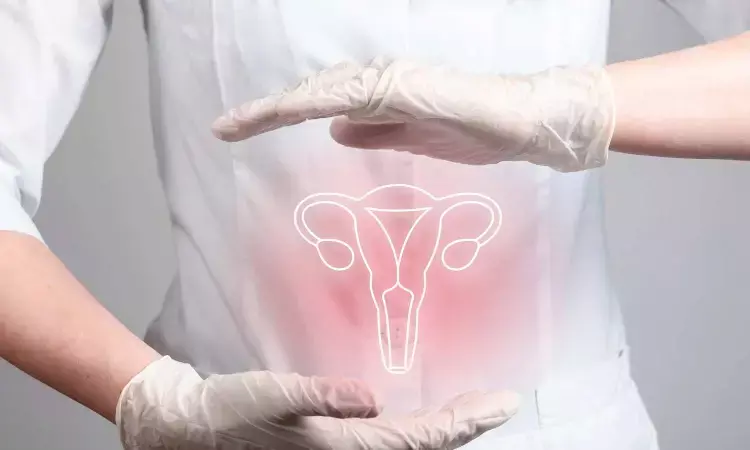- Home
- Medical news & Guidelines
- Anesthesiology
- Cardiology and CTVS
- Critical Care
- Dentistry
- Dermatology
- Diabetes and Endocrinology
- ENT
- Gastroenterology
- Medicine
- Nephrology
- Neurology
- Obstretics-Gynaecology
- Oncology
- Ophthalmology
- Orthopaedics
- Pediatrics-Neonatology
- Psychiatry
- Pulmonology
- Radiology
- Surgery
- Urology
- Laboratory Medicine
- Diet
- Nursing
- Paramedical
- Physiotherapy
- Health news
- Fact Check
- Bone Health Fact Check
- Brain Health Fact Check
- Cancer Related Fact Check
- Child Care Fact Check
- Dental and oral health fact check
- Diabetes and metabolic health fact check
- Diet and Nutrition Fact Check
- Eye and ENT Care Fact Check
- Fitness fact check
- Gut health fact check
- Heart health fact check
- Kidney health fact check
- Medical education fact check
- Men's health fact check
- Respiratory fact check
- Skin and hair care fact check
- Vaccine and Immunization fact check
- Women's health fact check
- AYUSH
- State News
- Andaman and Nicobar Islands
- Andhra Pradesh
- Arunachal Pradesh
- Assam
- Bihar
- Chandigarh
- Chattisgarh
- Dadra and Nagar Haveli
- Daman and Diu
- Delhi
- Goa
- Gujarat
- Haryana
- Himachal Pradesh
- Jammu & Kashmir
- Jharkhand
- Karnataka
- Kerala
- Ladakh
- Lakshadweep
- Madhya Pradesh
- Maharashtra
- Manipur
- Meghalaya
- Mizoram
- Nagaland
- Odisha
- Puducherry
- Punjab
- Rajasthan
- Sikkim
- Tamil Nadu
- Telangana
- Tripura
- Uttar Pradesh
- Uttrakhand
- West Bengal
- Medical Education
- Industry
Non-Invasive Predictive Model may Help in Early Detection of Endometriosis in Infertile Women: Study

A recent study by Jie Zhang and team have successfully crafted a non-invasive predictive model to identify minimal or mild endometriosis in patients who struggle with infertility. The findings were published in the Journal of Minimally Invasive Gynecology.
Infertility affects millions worldwide and identifying the underlying causes is a persistent challenge. By recognizing the significance of early detection in endometriosis-related infertility the team sought to develop a predictive model. This retrospective study was conducted at a tertiary referral center and enrolled a total of 1365 infertility patients who underwent laparoscopy between January 2013 and August 2020.
The study divided patients into a training set (n=910) for model development and a validation set (n=455) for confirmation. This in depth evaluation included sensitivities, specificities, AUCs, the Hosmer-Lemeshow goodness of fit test, NRIs, and IDIs. The final model demonstrated high accuracy by incorporating BMI, dysmenorrhea, dyspareunia, uterosacral tenderness, and serum CA-125. Sensitivities of 87.7% and 93.3%, specificities of 68.6% and 66.4%, and AUCs of 0.84 and 0.85 were recorded for the training and validation sets, respectively.
Uterosacral tenderness emerged as a pivotal predictor and the nomogram underscored good calibration and clinical value. This innovative model promises a cost-effective and less invasive means of identifying minimal or mild endometriosis, a significant factor in infertility.
This study delivers a reliable tool for clinicians as a crucial step towards personalized infertility care. Early identification is a key to prompt intervention which potentially revolutionize the landscape of infertility treatment. This is a significant advancement in empowering healthcare providers with a tool to enhance the diagnosis and treatment of infertility in women.
Source:
Zhang, J., Wang, J., Zhang, J., Liu, J., Xu, Y., Zhu, P., Dai, L., Shu, L., Liu, J., Hou, Z., Diao, F., Liu, J., & Mao, Y. (2023). Developing a predictive model for minimal or mild endometriosis as a clinical screening tool in infertile women: uterosacral tenderness as a key predictor. In Journal of Minimally Invasive Gynecology. Elsevier BV. https://doi.org/10.1016/j.jmig.2023.12.008
Neuroscience Masters graduate
Jacinthlyn Sylvia, a Neuroscience Master's graduate from Chennai has worked extensively in deciphering the neurobiology of cognition and motor control in aging. She also has spread-out exposure to Neurosurgery from her Bachelor’s. She is currently involved in active Neuro-Oncology research. She is an upcoming neuroscientist with a fiery passion for writing. Her news cover at Medical Dialogues feature recent discoveries and updates from the healthcare and biomedical research fields. She can be reached at editorial@medicaldialogues.in
Dr Kamal Kant Kohli-MBBS, DTCD- a chest specialist with more than 30 years of practice and a flair for writing clinical articles, Dr Kamal Kant Kohli joined Medical Dialogues as a Chief Editor of Medical News. Besides writing articles, as an editor, he proofreads and verifies all the medical content published on Medical Dialogues including those coming from journals, studies,medical conferences,guidelines etc. Email: drkohli@medicaldialogues.in. Contact no. 011-43720751


